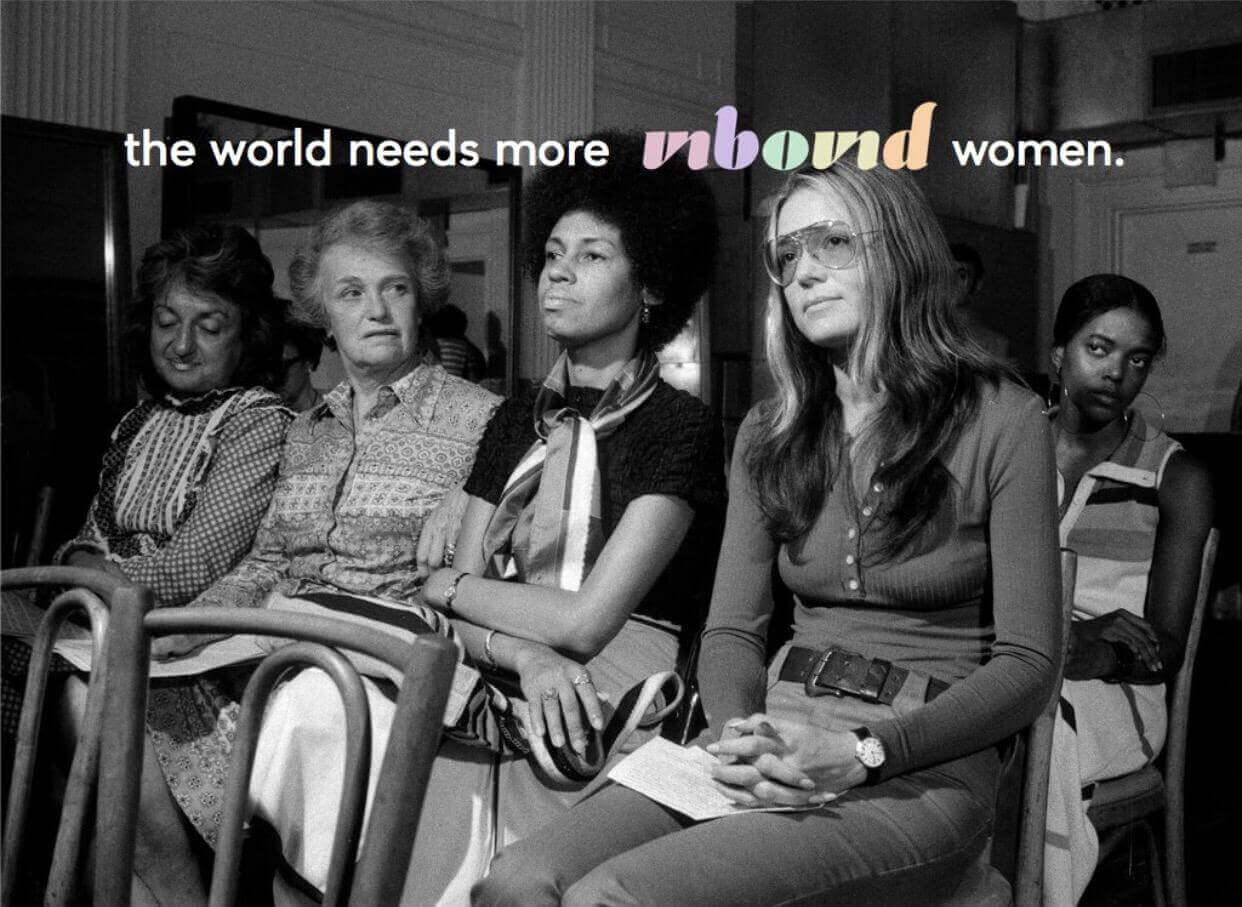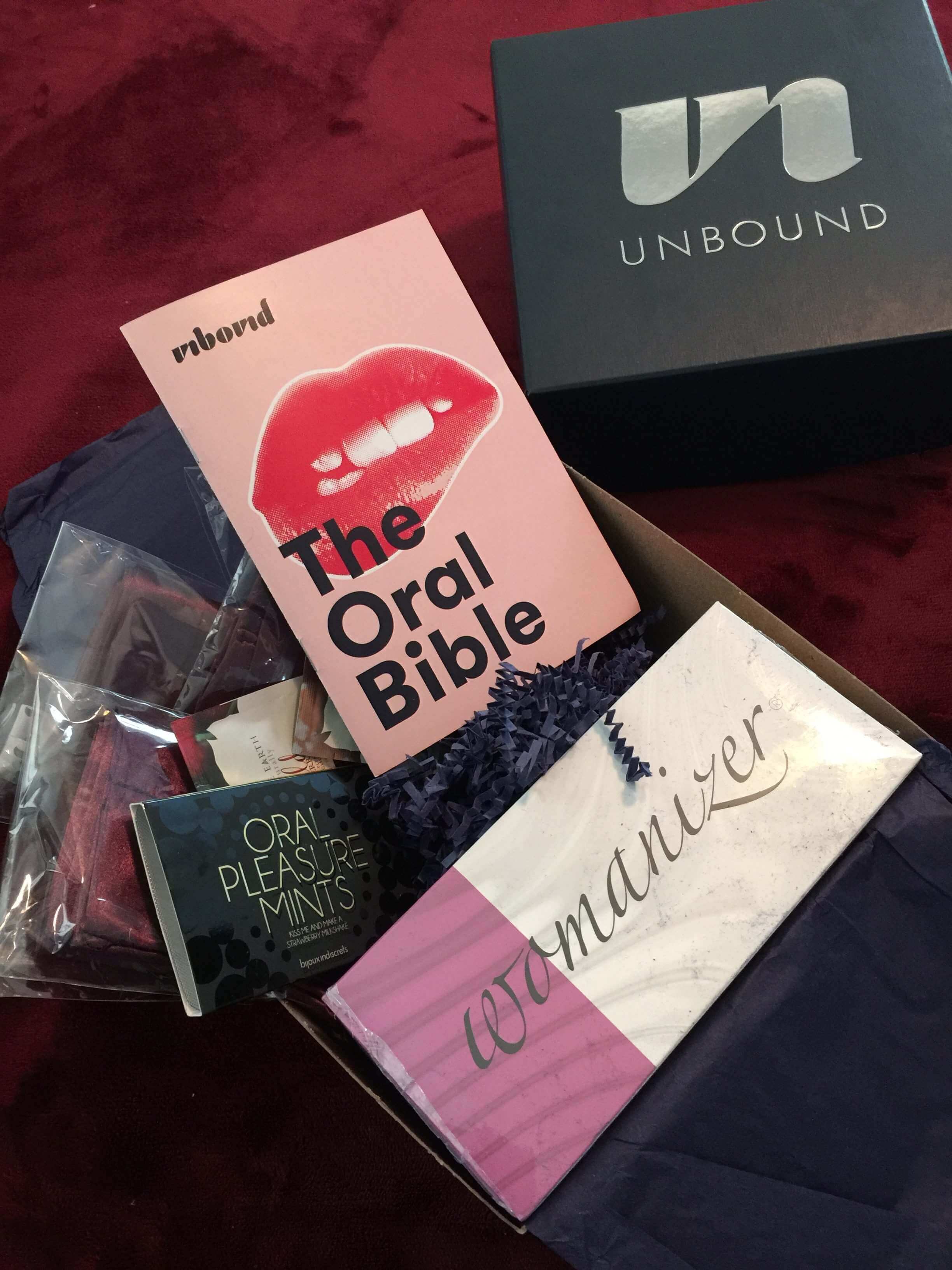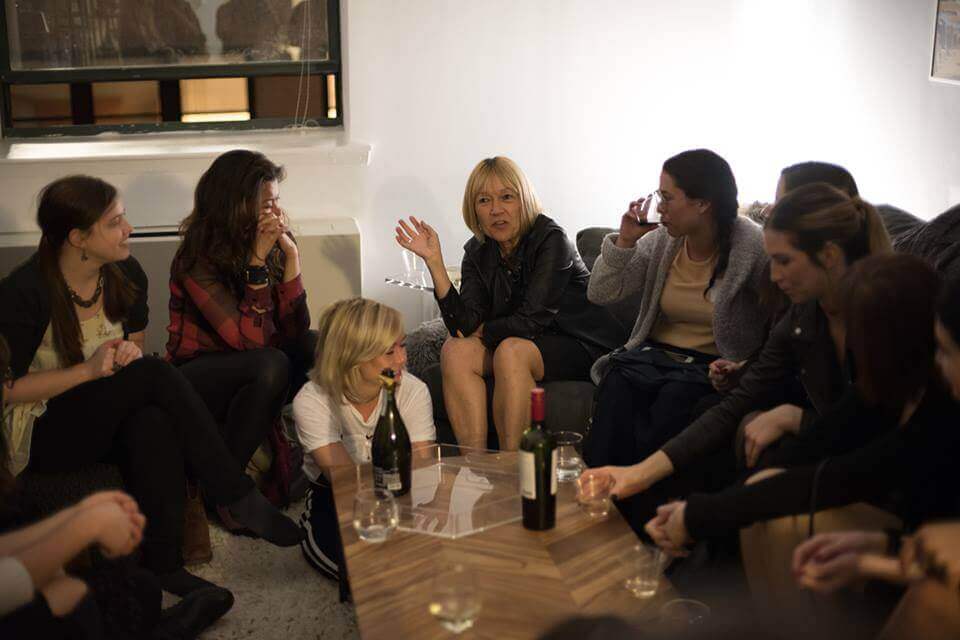The Rise of the Female Sex Tech CEO
Unbound’s Polly Rodriguez talks feminism and why it pays to put women’s pleasure first.
2017 is the year of “Vagina-nomics”—a time when new markets and platforms are emerging that place women’s sexual fulfillment and health at the forefront.

The evocative term was coined in the recent JWT Intelligence trends report. But you need only to look at the rise of female-led sex tech startups and their unapologetic online messaging to realize a disruptive cultural shift is underway.
In an industry that’s been run by men, and in which women’s bodies are often used to push product, female CEOs are launching e-commerce sites and building communities for women, by women. They are breaking taboos by putting women’s erotic needs first and creating dialogue about the diversity of female desires and body types. In doing so, they are redefining what it means to “act like a lady.”
One of these women is Polly Rodriguez. Two-and-a-half years ago, the NYC-based CEO cofounded Unbound, a subscription service and e-commerce site for sexual wellness products and female-focused merchandise. Rodriguez also began Women of Sex Tech, a support and networking group that includes influential players like Cindy Gallop and Bryony Cole.
I spoke to Rodriguez about what she’s learned from starting her company, including how she’s overcoming the old boys’ club and stigma against the sex tech industry.
What was your motivation to start Unbound?
Polly: When I was 21 years old I went through a cancer diagnosis that included radiation treatment that sent me through menopause at a really young age and none of my doctors really told me what that meant. They just said I would never have children.
So I found myself shopping in the category and looking for information online and falling short of being able to find information that was fact-driven, but also relatable—and not hyper medical, but also not Cosmo mag’s “8 crazy sex positions to try tonight.”
I went on to have a career on Capitol Hill and Wall Street and then at another Y Combinator startup. Coming out of that I wanted to create a company and was just still kind of shocked that there wasn’t a brand name that really owned the space in a way that a health or beauty brand would. So Unbound initially started as a subscription and as we scaled and grew we opened up an e-commerce site. We have a very big portion of our site that’s content as well. And then this year we’re building out our own private label in addition to that.

You’ve clearly taken on feminist messaging and a feminist brand identity. Why did you do this and what do you think sex toys have to do with women’s empowerment?
Polly: I think we take male sexuality as a given. Whether it’s male masturbation or the male orgasm, it’s kind of always in the forefront when we think about what sex means culturally. Based on my own experiences, and I think I’m speaking on behalf of all the women who work in our company as well, female sexuality is really underrepresented in the market.
If you look at the statistics 98% of men always orgasm during sex. There are differing reports, but overall only 30% of women routinely orgasm during sex. Why is this? I think that there’s a lot to unload there. There are biological reasons, which is that 70% of women need clitoral stimulation to orgasm during sex and that doesn’t happen usually during regular penetrative sex.
I also think there’s that cultural component to unpack, which is women asking for what they want and need in the bedroom. When we look at that and the juxtaposition of how ubiquitous pornography is and how often pornography isn’t really a realistic depiction of what sex should look like in order for a woman to be stimulated and aroused—with the caveat that pornography and sexual interest is different for everyone—as an education tool I don’t think it’s effective.
We wanted to create a company that took female sexuality and turned it turned it on its head. When you go to a lot of our competitor websites, it’s women that are in high heels and sultry lingerie with huge boobs and a little waistline. We dug into it and we realized that the vast majority of those companies had men running them. So the depiction of what female sexuality was, was from the male gaze.
And so for us it was, “Why don’t we build a company that’s for women and by women and really empowers women in their sexuality?” Because they don’t want to feel like they’re being compared to this male gaze view of what female sexuality is.
We are really genuine about it and really believe that female sexuality and women defining what female sexuality means to them is just a core component to the feminist movement, and to what it means to be a woman who is empowered to enjoy and explore and acknowledge her body.
What does feminism mean to you and have you always been a feminist?
Polly: Feminism means to me that women deserve the same rights as everybody else. I think anybody who hates on feminists is just basically hating on equality, which just seems ridiculous. I’ve always been a feminist. My grandmothers were both very influential in my life as well as my mother.
My mother’s mother was in the first graduating class of women in the University of Florida and an entrepreneur. Then my father’s mother was head of the League of Women Voters in St. Louis where I grew up. So both of them were very vocal that a woman’s place is wherever she wants it to be. They both worked. They both had jobs. They both fought for women’s rights, as did my mother.
For me there just was never an alternative; it was always just an expectation that women deserve everything everybody else does. And I think my mother and my grandmothers never tried to paint a pretty picture that it was easy. They were always very honest about how hard they had to work and how hard they had to fight. So I think it’s just embedded in my blood a little.

Unbound delivers specially themed “boxes” brimming with sexual wellness products to its subscribers.
Do you think there is such a thing as having “sex like a feminist” or “feminist sex”?
Polly: I think feminist sex is a woman’s right to define what good sex means to her, and then to feel that it is her right to ask for that and to pursue that. Communication can often be the biggest barrier when it comes to women being able to say this is what I want and actually this is what I need. And also this is what I desire because I am equal to whoever I choose my partner to be or just when it comes to masturbation.
There’s so much more stigma around female masturbation relative to male masturbation. Part of that is because nobody gives women permission to really masturbate. Whereas when you think of teenage young men, it’s just this given that we all we all know that they do it we all know that it happens.
For women that expectation just isn’t there yet. We hope that by being able to take our company and have our brand approach be a little more mainstream that we’re able to provide that to women who perhaps feel like they need to be given permission to masturbate or to ask for what they want when it comes to their sex lives.
You’re also the founder of the Women of Sex Tech group in New York City. Why did you start this group?
Polly: When I first got involved with this industry, I was really overwhelmed by the lack of women that were in it and how family owned and operated a lot of companies were and how a lot of them are also owned and operated by men. So I felt really alone. I also got harassed a decent amount at trade shows. It was very much the old gentleman’s club but not there was nothing gentlemanly really about it. I mean people were nice and no one was malicious, but I just found myself really feeling alone.
In addition to that, there were these crazy barriers that I had never anticipated, like having trouble getting a banking account, and not be able to take out Facebook ads, and getting denied for HR software, and not be able to get insurance. All of these things kept popping up and. I felt like, ‘Is it just me? Is it just my company?’
So we started it with the hope of creating community for women and then it has just expanded and grown organically over time. Because I think you’ve seen a lot of female owned and operated businesses popping up in the industry, which is awesome.

What is your advice for a woman trying to get into sex tech and start her own business?
Polly: I would just say really build a community; build a network; have a support system, which is what the Women of Sex Tech is for us. Having that network is really crucial because you get told no probably 10 times more than the average industry and having that support network there allows you to bounce back from those really hard moments.
When I look at startups across the board only 17% of all startups have a female founder. When we look at venture capital only 5% goes to women. When you take those overall stats about how hard it is to be a woman in the startup world—those numbers are pretty abysmal. Then when you couple that with an industry where you have this reputational risk where people make assumptions about who you are, people think you’re trashy, whatever it is, you just have to have like an exceptional amount of resiliency.
I would argue that because you have to have that much resiliency in order to keep the doors open that sex tech founders, especially female sex tech founders, are actually this rare breed of just unbelievably dedicated women. I would venture to guess that the percentage of female-founded sex tech companies that survive is higher relative to the average of startups overall, because you have to overcome so much in order to just even like keep the lights on.
What do you see as being the ideal future of sex?
Polly: I hope in the not too distant future women are proud of the fact that they enjoy their sex lives and define that to be whatever it is to them. What I hope the future of sex to be is that women are orgasming as often as they’re going to the gym.
The thing that blows my mind is that no person on this planet would exist if somebody didn’t have sex. We look at Facebook and social media and all of these technologies where we spend so much time now and the things that go viral are arguably the worst sides of humanity, whether it’s violence or bullying or all these depictions of pain.
To me I have more hope in the human spirit and that we can figure out a way to use technology to increase the amount of happiness and pleasure in people’s lives and have open conversations and dialogue. Still, to this day, I am not allowed to take out a Facebook advertisement for my company because it’s considered too stigmatized and too taboo. And yet the things that go viral on Facebook are people literally getting murdered.
I hope that the future of sex is one in which like we don’t treat it as this thing that has to be shoved under the rug and makes people feel dirty or bad or ashamed. Because to associate sex with something dirty or embarrassing or something that makes you feel bad about yourself is to deny our existence and how we came to be.
Image sources: Jim Hobart, Unbound, Women of Sex Tech/Facebook
*This interview has been edited for clarity and length.
Leave a reply
You must be logged in to post a comment.

















